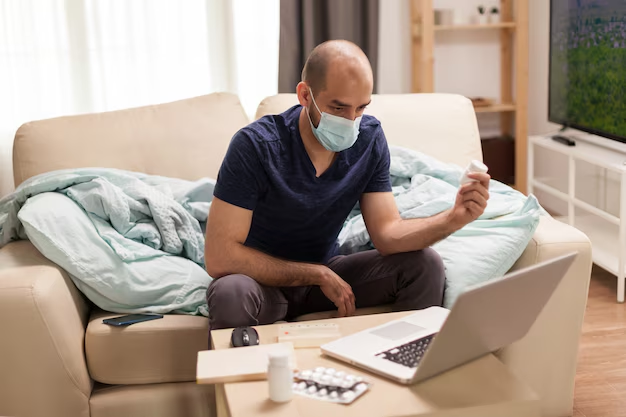Understanding Malaria and Strategies for Effective Management
Every year, millions of people across the globe encounter the debilitating effects of malaria, a disease that's not only widespread but incredibly impactful. If you're reading this, you might be seeking insights into how malaria can be managed effectively, aiming to either educate yourself or find practical ways to address the disease. This article offers a comprehensive look at malaria, outlining invaluable information to help you understand, prevent, and manage this disease.
Unraveling the Mystery of Malaria
What Is Malaria?
Malaria is a parasitic disease primarily transmitted through the bites of infected female Anopheles mosquitoes. Although it can be found in parts of the Americas, Asia, and the Middle East, it is predominantly an issue in sub-Saharan Africa. Malaria is caused by Plasmodium parasites, and among several species, Plasmodium falciparum and Plasmodium vivax are the most prevalent.
Understanding Its Symptoms
Malaria symptoms can range from mild to severe and often include:
- Fever and chills
- Headache
- Muscle and joint pain
- Fatigue
- Nausea and vomiting
- Anemia due to the destruction of red blood cells
- In severe cases, symptoms may progress to include confusion, seizures, or even coma.
Early identification and treatment are crucial, as the disease can quickly escalate to life-threatening levels, especially in individuals with weakened immune systems, pregnant women, and young children.
Approaches to Healing Malaria
Medical Treatments
For those diagnosed with malaria, timely medical treatment is essential. Here’s a look at some common therapies:
1. Antimalarial Medications: These are the cornerstone of malaria treatment and include:
- Chloroquine: Effective for strains sensitive to this drug.
- Artemisinin-based Combination Therapies (ACTs): Widely recommended for P. falciparum infections due to their effectiveness.
- Atovaquone-proguanil, Mefloquine, and Doxycycline: These are also used for prevention but may be included in treatment for certain cases.
2. Supportive Care: Beyond antimalarials, supportive treatments such as rehydration, fever management, and nutrient support are critical components in the care plan.
3. Stay Informed: Monitoring for drug resistance is crucial in regions where malaria is endemic, as resistance patterns can dictate which medications are most effective.
Preventing Malaria
Prevention is better than cure, particularly with malaria. Here are some effective prevention strategies:
1. Insect Repellents: Use insect repellents on exposed skin and wear long sleeves and pants to minimize mosquito bites.
2. Insecticide-treated Bed Nets (ITNs): Sleeping under ITNs can significantly reduce the risk of nighttime mosquito bites.
3. Indoor Residual Spraying (IRS): This involves coating the walls and other surfaces of a home with insecticides to kill mosquitoes before they can transfer the disease.
4. Antimalarial Prophylaxis: For travelers visiting malaria-endemic areas, taking prophylactic antimalarial drugs as prescribed can prevent the onset of the disease.
Embracing Comprehensive Malaria Management
Nutrition and Recovery
Good nutrition plays a pivotal role in recovery, especially given the nutrients lost during fever and illness. Maintaining a balanced diet rich in vitamins and minerals assists in strengthening the immune system. Some key points include:
- Hydration: Staying well-hydrated is crucial, particularly if there is fever and vomiting.
- Iron-rich Foods: These help counteract anemia. Include foods like spinach, lean meats, and legumes.
- Food Safety: Properly prepared food reduces the risk of other infections while the body is recovering from malaria.
Community-Based Interventions
Community efforts can be incredibly effective in controlling malaria:
- Education and Awareness Campaigns: Teaching communities about prevention methods can lead to significant reductions in transmission.
- Environmental Management: Addressing breeding sites, such as standing water, reduces mosquito populations.
- Access to Healthcare: Ensuring local populations have access to diagnostic tools and medicines is a key strategy in managing and eliminating malaria.
Innovations in Malaria Control
Advancements in technology and innovation are providing new tools in the battle against malaria:
- Vaccine Development: The RTS,S/AS01 (RTS,S) vaccine is showing promise, particularly in preventing P. falciparum malaria in young children.
- Genetic Engineering: Research is ongoing into genetically altering mosquitoes to reduce their capacity to carry and transmit the parasite.
Understanding Risk and Protecting Vulnerable Populations
It's also crucial to recognize that certain groups are more vulnerable to severe malaria:
- Young children and infants are at high risk due to their undeveloped immunity.
- Pregnant women face greater risks of severe disease and complications.
- Travelers from non-endemic regions may lack immunity and should take additional precautions.
Promoting access to medical care, preventive tools, and education for these groups is vital in reducing mortality rates associated with malaria.
Building a Future Free From Malaria
Ultimately, a multi-pronged approach combining treatment, prevention, and innovative solutions holds the key to tackling malaria effectively. While significant strides have been made globally—demonstrated by decreasing deaths and infections in many regions—the quest for a malaria-free world continues.
Every effort counts, from individual protection measures to global collaborations aiming to develop new tools and strategies. With the right information and actions, not only can malaria be managed and treated more effectively, but its devastating effects can also be mitigated, moving us closer to potential eradication.
Quick Takeaways for Malaria Management:
- 🦟 Use Protection: Sleep under insecticide-treated bed nets and wear protective clothing.
- 💊 Seek Prompt Treatment: Immediate medical intervention and antimalarials are crucial.
- 🛡️ Prevention First: Utilize insect repellents and prophylactic medications in endemic regions.
- 🍽️ Nutrition Matters: A balanced diet aids recovery; focus on iron-rich foods to combat anemia.
- 🔍 Stay Informed: Be aware of regional resistance patterns and new developments in treatment.
- 🌍 Community Action: Engage in local education and eradication campaigns to reduce transmission.
By understanding and applying these principles, individuals and communities can significantly reduce the incidence and impact of malaria, paving the way for healthier societies worldwide.

